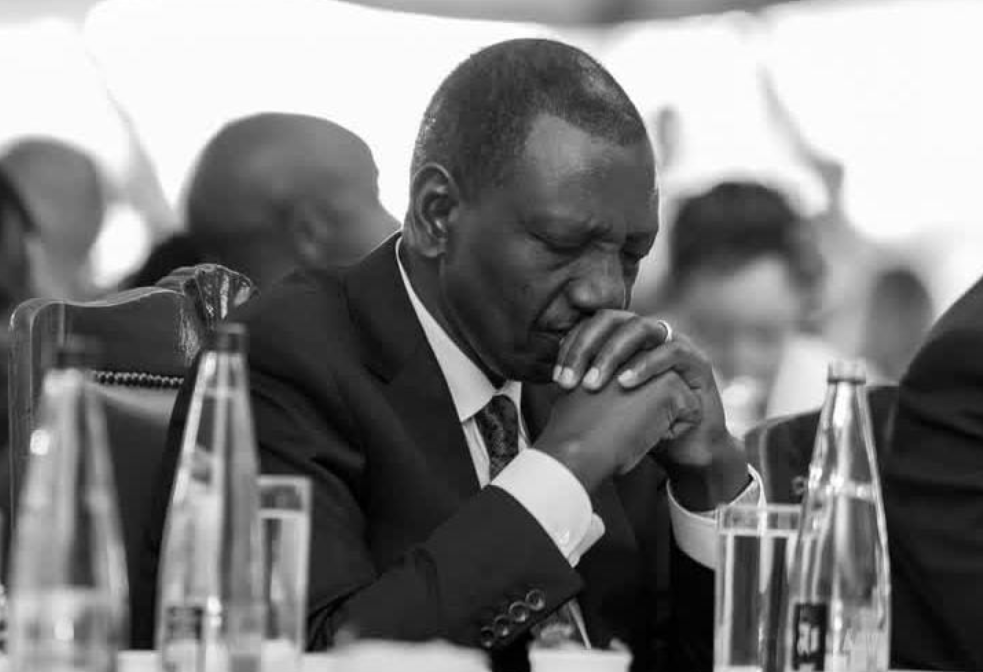US Slams Ruto's Regime: Human Rights Under Fire, Sanctions Loom

The U.S. government has expressed significant alarm regarding a sharp decline in Kenya’s human rights record in 2024, as detailed in its latest Country Reports on Human Rights Practices. The report cites widespread abuses, including unlawful killings, enforced disappearances, torture, and increasing restrictions on media freedom. President William Ruto’s administration is accused of committing serious violations during the youth-led “Gen Z” protests in June and July 2024, which initially opposed proposed tax hikes in the Finance Bill and later escalated into broader anti-government demonstrations after the bill’s withdrawal.
According to the Kenya National Commission on Human Rights (KNCHR), at least 60 individuals died in incidents related to the protests. The Independent Policing Oversight Authority (IPOA) also documented 50 deaths and 199 injuries, directly attributing these casualties to excessive force used by the police. The U.S. report further highlights a pattern of arbitrary arrests, prolonged detentions without charge, and enforced disappearances. It notes the controversial use of hooded, masked officers in civilian clothes during protests, despite a High Court ruling prohibiting such attire. KNCHR data indicates 82 abductions or disappearances since June 2024, with 29 individuals remaining missing by year's end. Former detainees recounted threats from individuals believed to be police officers, warning them against online protest-related content. Human rights NGOs reported the routine use of torture during interrogations, including beatings, stress positions, and electric shocks.
The report emphasizes that "impunity was a serious problem across security agencies," accusing the Kenyan government of failing to acknowledge abuses or hold officers accountable for actions during the Gen Z demonstrations. Rights groups further allege that disciplinary transfers and deliberate obstruction of investigations were employed to shield the identities of implicated officers. Concerns extend to transnational repression, with Washington accusing Kenyan authorities of complicity in cross-border crackdowns on dissidents. Examples include the July 2024 arrest and forced return of a registered Ugandan refugee and 36 members of Uganda’s opposition FDC party from Kisumu to Uganda to face terrorism charges. In November, veteran Ugandan opposition figure Kizza Besigye was allegedly abducted in Nairobi by Ugandan agents and driven to Kampala, where he now faces treason charges. Although Nairobi initially denied knowledge, Ugandan authorities claimed the operation was coordinated between the two governments.
Attacks on press freedom are also detailed, encompassing intimidation and violence against journalists, including physical assaults during live broadcasts and incidents of media self-censorship following government threats. The Media Council of Kenya recorded a minimum of 24 cases of harassment and attacks on journalists during the Gen Z protests, with some reporters targeted with tear gas and detained by police. Beyond political repression, the State Department flagged other persistent human rights issues, such as poor labor law enforcement, hazardous working conditions, pervasive child marriage, and ongoing female genital mutilation in certain communities. While acknowledging some government steps to investigate and punish abuses, the report concludes that "impunity was a problem at all levels of government."
The arrest and prosecution of prominent activist and blogger Francis Gaitho have garnered specific attention, being highlighted in the 2024 U.S. Department of State Human Rights Report as a major rights violation under President William Ruto’s administration. His case signifies increasing international concern over Kenya’s human rights trajectory and could potentially lead to targeted sanctions against officials involved. Human rights observers view this inclusion as significant, not only for its political implications but also for its acknowledgment of blogging as a legitimate and impactful medium for disseminating information, on par with traditional journalism. This recognition elevates the role of independent digital voices in public discourse and the safeguarding of democratic freedoms. Gaitho, known for his vocal critiques of government policy, was arrested and prosecuted in what rights groups describe as an orchestrated effort to stifle dissent. The report's focus on his situation adds to a growing international and local chorus warning of a shrinking civic space in Kenya. As diplomatic pressure intensifies, analysts caution that Kenya might face severe diplomatic and economic repercussions if these allegations result in formal sanctions.
You may also like...
Mid-Air Terror: Super Eagles' Flight in Dramatic Emergency Landing

The Nigeria Super Eagles delegation experienced a mid-air scare when their chartered flight from Polokwane to Uyo was fo...
High Stakes Showdown: Super Eagles Battle Benin in Must-Win World Cup Qualifier
)
Nigeria's Super Eagles face the Benin Republic's Cheetahs in a crucial 2026 FIFA World Cup qualifier in Uyo. With Benin ...
Massive Update: Jessica Rothe Confirms 'Happy Death Day 3' Will Conclude Tree's Journey

Fans of the "Happy Death Day" franchise can rejoice as star Jessica Rothe confirms the third film is in the works. While...
Sean Penn Joins Lumière Festival in France as Park Circus Expands Warner Classics Library with Gem-Studded Slate

Sean Penn, guest of honor at the Lumière Film Festival in Lyon, delivered an emotional opening speech celebrating Jack N...
South Africa's Poetic Remembrance: The Lasting Echo of Sarah Baartman

A new documentary delves into the life of Sarah Baartman, moving beyond exploitation to highlight her depth, multilingua...
Celebrity Shockwave: Katie Price's New Look Ignites Public Worry!

Katie Price has sparked alarm among fans with a recent Instagram post showcasing dramatic weight loss, fueling fears abo...
Strictly Stunner: Shocking Spoiler Leaves Fans Breathless and Baffled!

This week's Strictly Come Dancing saw the second elimination results prematurely leaked online, much to the dismay of fa...
Madame Tussauds London's Quirky New Exhibit: A Wax Sausage Roll Joins the Stars

Madame Tussauds London has unveiled its first-ever food item wax figure: a Greggs sausage roll. This unique addition cel...

